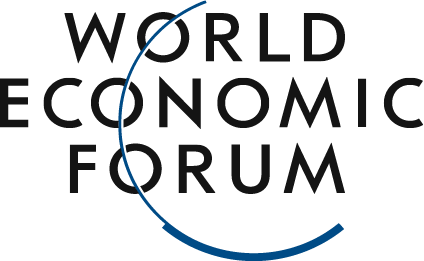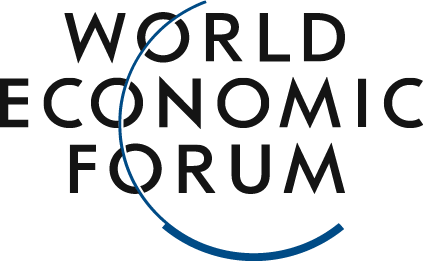

Brunei's practices could offer valuable insights for the global digital health transformation.
Image source: Photo by Merah Lee on Unsplash
Muhammad Ihsan Jaafar
Brunei's Minister of Health
Gong Rujing
Founder and Chairman of MedVoy Technology
Brunei's experience in building the BruHealth platform demonstrates how a digital platform can evolve—from serving as a crisis-response tool—into a vital force that supports and strengthens the nation’s overall healthcare system.
Although Brunei's national context has certain unique characteristics that make its model difficult to replicate entirely, the experience gained throughout this implementation process could still offer valuable insights for the global digital health transformation.
Brunei's practice confirms: Truly sustainable digital health transformation hinges on the seamless integration of intelligent systems, the consistent application of inclusive design principles, and robust, ongoing governance mechanisms.
The World Health Organization projects that by 2030, the global health workforce shortfall will reach 11.1 million, while currently 4.5 billion people worldwide still lack access to essential healthcare services. Meanwhile, non-communicable diseases have become the leading cause of premature death globally—factors that are increasingly compelling countries to shift their healthcare systems from a "treatment-focused" approach to a more "prevention-oriented" model.
The COVID-19 pandemic has sparked an unprecedented wave of digital health innovation worldwide. While many countries have encountered both technological and systemic challenges in the process, it is precisely these experiences that have provided invaluable learning opportunities for driving the digital transformation of healthcare.
As countries around the world are actively exploring digital health solutions, sharing practical experiences from different nations and regions has become increasingly important for mutual learning and collaborative improvement. Brunei, in building its national digital health platform BruHealth, has provided a highly instructive example worth considering.
Initially, BruHealth’s core function was COVID-19 tracking, but it quickly evolved into a comprehensive platform integrating health management, medical services, and personalized health habit-building. As of now, 63% of Brunei’s residents log in to the platform at least once a week. So far, 566,403 users have accessed their lab test results through the platform, while 335,320 users have viewed their imaging examination reports.
Insights into Implementing Sustainable Health Engagement
From the practical experience of Brunei's Ministry of Health, we can distill several transformational lessons with broad applicability—though these insights are also shaped by the region's unique local conditions.
Brunei's Ministry of Health has adopted a development approach that is "gradual and driven by user feedback," rather than launching complex systems on a large scale right from the start, to prevent users from feeling overwhelmed by intricate features. Functional modules are being rolled out incrementally, including personal health records, appointment scheduling, online queue management, video consultations, and preventive screenings. This phased approach has proven effective in boosting user retention and fostering long-term engagement.
Another key innovation lies in helping residents transform their "short-term health enthusiasm" into "long-term healthy behaviors." Traditional public health initiatives often struggle to foster lasting behavioral change. To address this, the BruHealth platform has introduced the "BruPoints reward system": Residents can earn points by participating in health screenings, meeting daily step goals, consistently taking prescribed medications, and more—points that can then be redeemed for gifts at participating local businesses. This approach not only provides tangible benefits for preventive health practices but also supports the growth of community-based merchants.
These features demonstrate that digital platforms not only serve clinical healthcare but also enable "mass participation" in health promotion. For instance, the government-initiated "BN on the Move" nationwide step challenge drew nearly 49,000 participants, who collectively logged over 1 billion steps in just eight days. Meanwhile, the "Oyen Challenge" has successfully kept users motivated to adopt healthy lifestyles through gamified elements and friendly competition. Clearly, when designed thoughtfully, digital tools can unleash powerful momentum for positive health behaviors.
Of course, Brunei also faces globally shared challenges: older adults and individuals with limited digital skills are more likely to be left behind by the digital transformation, while language barriers further restrict access for some groups. To address these issues, the country is continuously refining its platform experience by offering a streamlined interface, multilingual options, and promoting digital literacy education through community initiatives—all aimed at ensuring inclusive and equitable access for everyone.
From a policy perspective, the sustainable transformation of digital health is not just a technological challenge—it is, more importantly, about systematically building governance capabilities. To this end, Brunei’s Ministry of Health has established three core institutions: the "Ministry of Health Smart Information Center," which automates disease monitoring; the "Digital Health Task Force," responsible for overseeing the digital transformation of healthcare services; and the "Epidemic Intelligence and Response Center," which strengthens the nation’s capacity to tackle public health crises.
As the rotating chair nation of ASEAN Health Cluster 3, Brunei is also actively engaging in knowledge-sharing and collaborative responses with countries facing similar challenges through regional cooperation platforms. Health security issues transcend national borders, underscoring the need for cross-border coordination and collective efforts to safeguard global well-being.
Currently, the critical question facing global health leaders isn’t “whether to go digital”—it’s “will this transformation ultimately advance or hinder the achievement of universal health coverage and health equity goals?”
Based on Brunei's experience, only digital health initiatives that genuinely prioritize citizen participation, proactively address equity issues, and consistently advance institutional capacity-building can pave the way for a more resilient and sustainable universal healthcare system.
Technological innovation empowers the intelligent transformation of health systems.
The collaborative project between MedVoy Technology and Brunei's Ministry of Health, implemented specifically by the local joint venture EVYD, fully demonstrates the value of international cooperation—effectively advancing medical technology innovation while fully respecting local market conditions and regulatory requirements.
The launch of BruHealth 5.0 marks the platform's transition from a "content-sharing tool" to a "learning-based health ecosystem." The new-generation system leverages AI technology to analyze users' dietary habits, sleep patterns, stress levels, exercise routines, and other behavioral traits—then dynamically tailors health recommendations to meet individual needs, shifting away from a one-size-fits-all approach toward personalized, tailored solutions.
This technological approach addresses a core challenge in traditional public health: how to ensure that health interventions are truly tailored to individuals' specific risks and lifestyles. Preliminary data show that AI-driven personalized recommendations are far more effective at sparking user engagement and motivating behavior change compared to generic health education initiatives.
Of course, the application of AI in healthcare must adhere to ethical principles. At MedVoy Technology, we have consistently emphasized principles such as algorithmic transparency, physician oversight of AI recommendations, and dynamic monitoring for potential biases throughout the deployment process—ensuring fairness, accountability, and a human-centered approach. These measures address the emerging challenges that arise as AI-driven healthcare solutions scale up.
Medidata Technology's technical architecture emphasizes "modular design and cross-regional adaptability." The platform can be rapidly customized to align with the regulatory environments, cultural preferences, and infrastructure conditions of different countries—while maintaining core functionalities and enabling seamless migration and reuse of technological capabilities.
Looking ahead, MedVoy Technology will leverage the BruHealth platform to further advance cutting-edge applications such as precision public health, digital therapeutics, and AI-driven health insights. While continuously enhancing technological innovation, we remain committed to ensuring accessibility, so that these advancements truly benefit everyone, creating real value rather than erecting barriers.
This aligns closely with the World Economic Forum’s “Digital Health Transformation Initiative”: the success of digital health transformation hinges not on technology deployment alone, but on seamlessly integrating intelligent systems with inclusive design and robust governance frameworks. After all, truly valuable technological innovations are those that strengthen healthcare systems’ capacity to serve people—and ultimately benefit everyone, regardless of background or circumstance.

The above content solely represents the author's personal views.This article is translated from the World Economic Forum's Agenda blog; the Chinese version is for reference purposes only.Feel free to share this in your WeChat Moments; please leave a comment at the end of the post or on our official account if you’d like to republish.
Editor: Wang Can
The World Economic Forum is an independent and neutral platform dedicated to bringing together diverse perspectives to discuss critical global, regional, and industry-specific issues.
Follow us on Weibo, WeChat Video Channels, Douyin, and Xiaohongshu!
"World Economic Forum"


